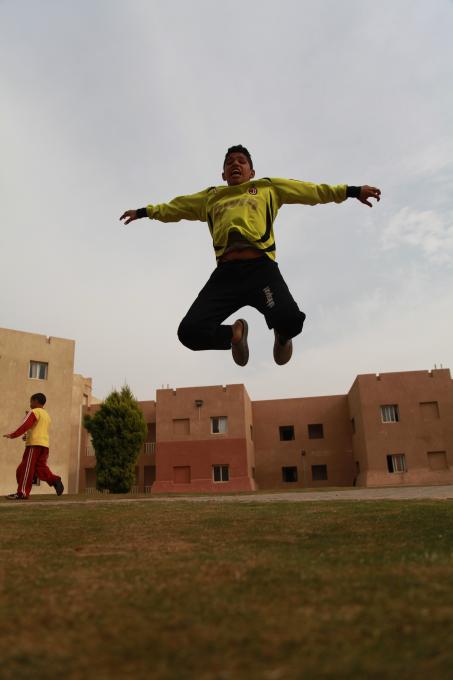Egypt’s Street Children Aim High in Rio 2014
“We want to prove to people that we can be somebody, so that our families and communities don’t lose hope in us. There are many kids, just like us, living on the street, and we are representing them here. We don’t know if we will win this “World Cup” or not - but at least we participated, at least we are here.”
This powerful message comes from six Egyptian children who have spent much of their lives on Cairo’s streets. They were selected as part of the Egyptian delegation for the Street Child World Cup 2014, which took place in March this year, ahead of the current FIFA World Cup in Brazil.
The Street Child World Cup kicked off in Rio de Janeiro with 230 children aged 13-17, from 19 different countries, taking part in the competition. The organisers partnered with Save the Children International to create an exciting long-term partnership which aims to dramatically change the lives of millions of children across the world that live and work on the streets. The 10-day opening event for the partnership was far more than just a game, as in addition to football, the children participated in an arts festival and the only global street child conference of its kind, which culminated in the “Rio Rights Declaration”. This declaration included a number of country-specific asks, to ensure that the Street Child World Cup continues to be used as a platform for change once the children have returned to their respective countries.
Save the Children worked with local partner Ana El Masry Foundation to create Egypt’s group of six young people –named the “street champions”- as an inspiring example of how every child has a future away from the streets when they receive the right protection, rehabilitation and opportunities. Four boys and two girls were chosen by Save the Children’s partner organisations, as inspirational examples of those who have left the streets behind. They were nominated to become “street champions” not only for the other children involved in the partners’ projects, but for all children still living on the streets.
The Egyptian team played against Brazil, Liberia and South Africa in the tournament, losing the first two matches but winning 2-0 against the latter. All players received medals for participating in the event. The experience of travelling and meeting their peers served as a motivation to continue their football trainings once they returned to Egypt, in the hope of participating in such events again. One of the players said that, despite the language barriers, he “made many friendships with people all over the globe and we manage to keep in touch through Facebook”.
Save the Children Egypt, in partnership with Ana El Masry Foundation, continues to work with the children who participated in the event, along with their peers, by using sports – and football in particular –as a way of tackling their situation. A documentary about the children’s experiences is being created by Save the Children, and will be shared in both Rio and Egypt along with the children’s messages and ideas inspired by this unique event.

 Egypt
Egypt